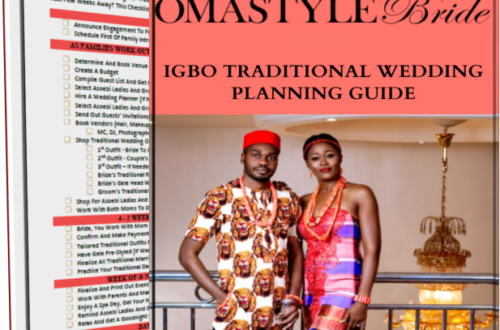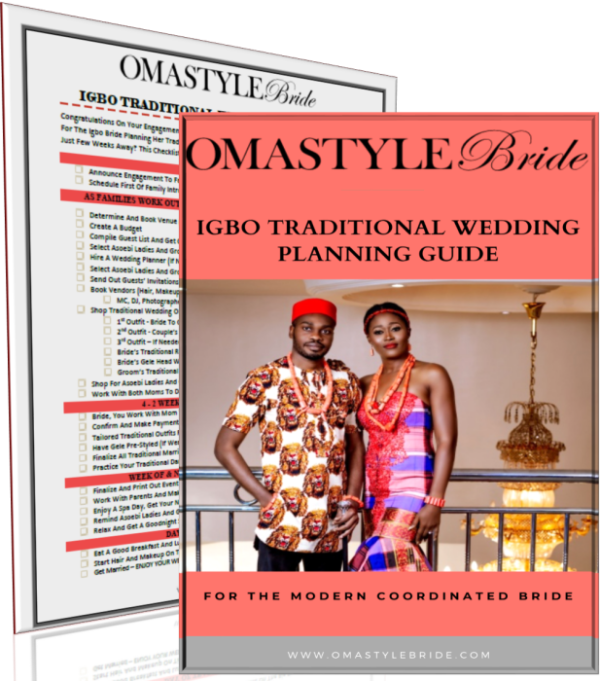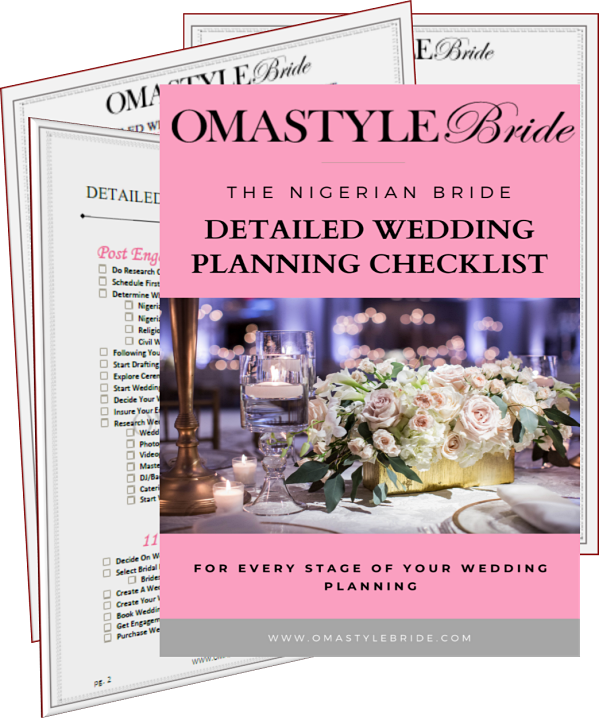How Do I Start Planning My Nigerian Wedding?
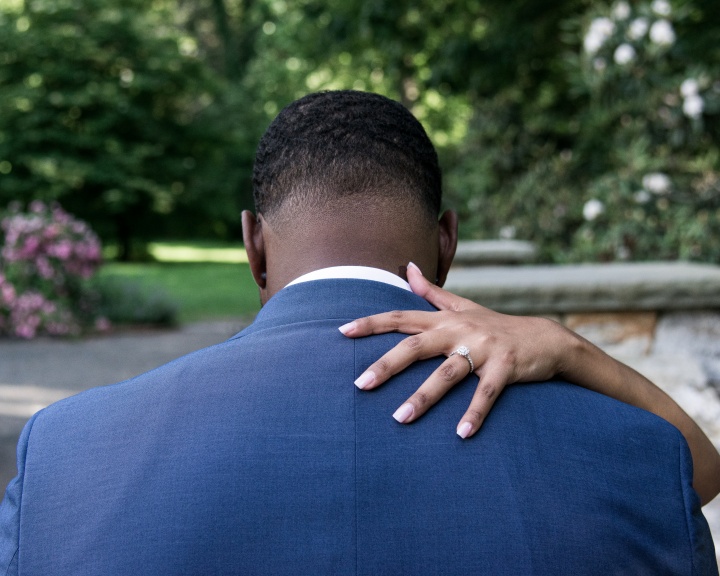
How Do I Start Planning My Nigerian Wedding? That is the question every bride will think or ask herself shortly after she is engaged.
First, congratulations on your recent engagement! What follows next is starting your Nigerian wedding plans.
With the excitement from your engagement, it might overwhelm you how and where to planning; and that is very understandable. Especially, since it will be the biggest event, you will ever have to plan.
As a bride to be, your Nigerian wedding planning process differs from other wedding processes and involves the traditional wedding process, which needs to take place before you can wed.
Even if you are planning small or big wedding, these traditional process comes first!
From my experience, here are six steps to help you start your wedding planning the right way with ease while making sure you complete the important traditional process before proceeding into a full-blown wedding planning.
STEP 1 – Nigerian Wedding Family Introduction
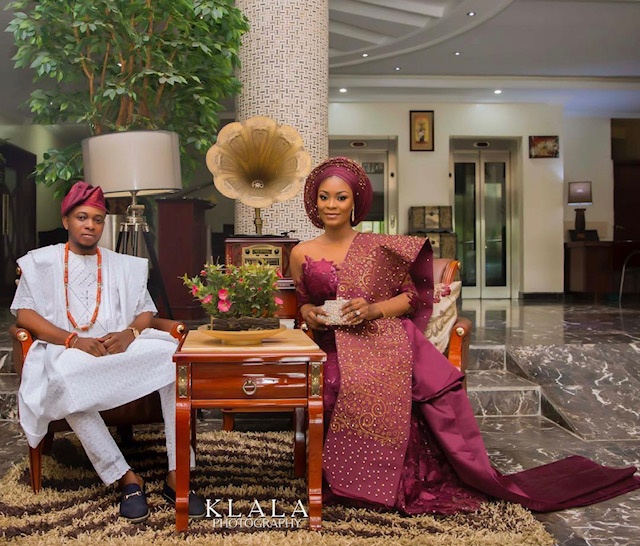 Photo by Klala Photography
Photo by Klala Photography
The Family Introduction is a ceremony held for both families to meet one another for the first time following your engagement. The reason behind the introduction is to introduce key family members of both families; and for them get to know their respective future in-laws and approve their children’s engagement for marriage. This is a small occasion that takes place in the bride’s home.
Yoruba and Igbo cultures have Family Introduction. In Igbo culture, it’s called “Iku aka”. The traditional wedding process and requirements vary from one Igbo community to another.
The completion of the traditional wedding rite is a very important and signifies the couple’s marriage in Yoruba and Igbo Land; and gains all the rights of married couples.
Planning Your Igbo Traditional Wedding And Need A Detailed Planning Guide? Click GUIDE To Get Your Free Copy Today!
STEP 2 – Two Weddings, Twice The Fun!
As a Nigerian bride, you will plan two weddings at the same time and that is a normal; the traditional and the church wedding, famously known as “white wedding” in Nigeria culture. The traditional wedding often takes place first before the church wedding ceremony that is more western in style. The couple can have their traditional wedding days, weeks or months apart before the church wedding.
The good news is that the traditional wedding is less demanding on the bride compare to the white wedding because the bride’s parents and elderly family members handle most of the traditional requirements with the groom’s family.
The white wedding ceremony will require a lot more of your attention to put together a ceremony that reflects your style and your hubby as a couple.
The Traditional Wedding
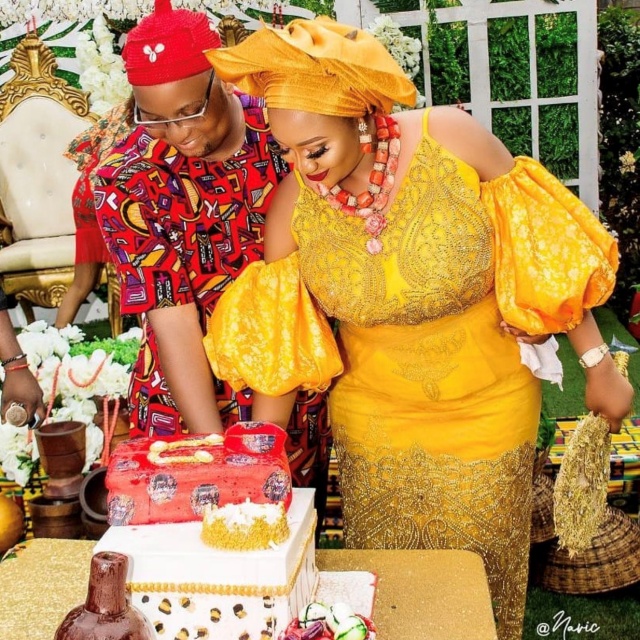 Photo by Naric Weddings
Photo by Naric Weddings
Traditional wedding has their names in both Yoruba and Igbo cultures. In Yoruba is “Eru Iyawo”; and while in Igbo it is “Igwa nkwu”. Before the marriage can proceed further after the family introduction, both families in Yoruba and Igbo culture, conduct investigates on their future in-laws through individuals who know the bride and groom’s family.
They do the investigations before you and your hubby can set your wedding dates to ensure both families understand each family’s characters and there are no hidden surprises that might hurt you, the bride and groom’s future.
In Igbo culture, the traditional wedding takes after the families complete the traditional wedding requirements; and the celebration takes place at the bride’s parents’ home. Over the years, traditional weddings have grown into a big and glamorous celebration; and sometimes held in large reception halls.
Also in Igbo culture, traditional weddings can take place months, weeks and days in advance before the white wedding. However, today, some Igbo couples combines both celebrations for the same day to save money. You have the choice to have a big traditional wedding celebration or keep it small; the choice is yours.
In Yoruba culture, traditional wedding is also a glamorous, big occasion that takes place in a large reception hall and usually one day before the church wedding.
Church /White Wedding
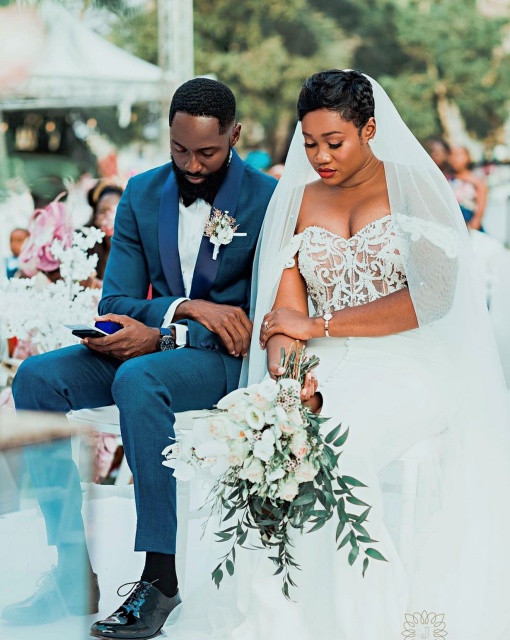 Photo by Jema Studios
Photo by Jema Studios
The white wedding as it’s famously known among Nigerians is a wedding celebration in western form following the British influence in Nigeria culture (Nigeria was a former colony of Great Britain before its Independence in 1960). It’s also called Church/Religious/White Wedding because the bride wears a white gown for ceremony, often held in a church, and follows the same process as the western wedding celebration.
STEP 3 – Search Weddings & Set Your Priorities
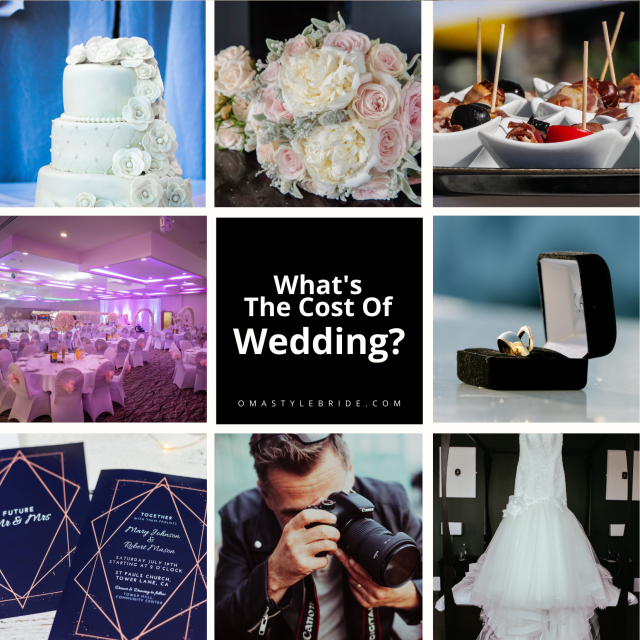
With the above knowledge about the two weddings for Nigerian couples. You will need to do some search of the wedding industry to get an idea for the cost of church wedding, your style, and the wedding you and your hubby wants.
With the church wedding, you have more control on what you want and don’t want. Because with traditional wedding requirements, you and your hubby have little say. However, you can communicate your concerns to your parents and they will handle that situation better for you and your hubby.
After your research, you will need to create a list of your priorities and create a budget to help you control your spending.
Having your priorities listed out helps you narrow down the most essential items you want for your wedding. Such as the size of your wedding–big or small wedding, open wedding or invite-only? location, food, drinks, where to make a splash, compromise or do it yourself, if needed.
Having your priorities and your budget straight will make your wedding planning process easier, and help you stay on budget.
Planning Your Multicultural, Nigerian Wedding And Need A Detailed Wedding Planning Checklist? Click CHECKLIST To Get Your Free Copy Today!
STEP 4 – Set A Wedding Budget

Setting a wedding budget is very important to avoid overspending. There is often a tendency to overspend with weddings, that’s why it’s important to know the wedding you want and your guests count because that will affect your budget the most.
These days, the bride and groom jointly pays for their own wedding. But sometimes, the couple gets financial help from their families to pay for their wedding expenses.
Whether or not you get help with your wedding expenses, the goal is to create a realistic budget to help you avoid overspending. And should any surprises come up, which can happen with weddings; you will be in a suitable position to take care of the surprise expense with ease because you have not overspent.
STEP 5 – Pick A Wedding Venue
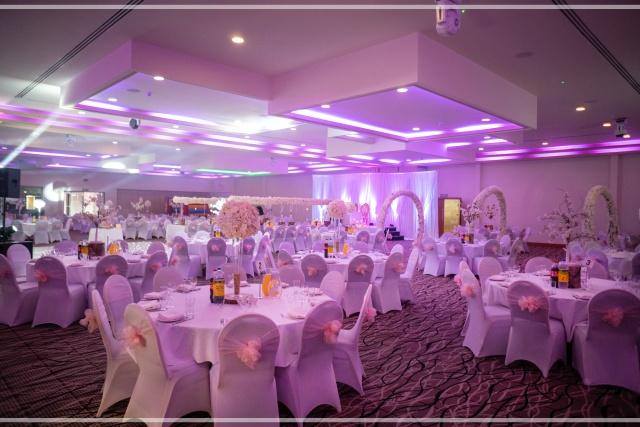
From your research, you will now know the church wedding you want, you have your budget set, picked your wedding date, and now it’s time to look for a wedding venue that reflects the vision for your wedding.
Before you buy your wedding dress, you need to pick and book your wedding venue and date. The earlier you do so, the better chance for you to get the venue you want for your big day.
STEP 6 – Create A CheckList
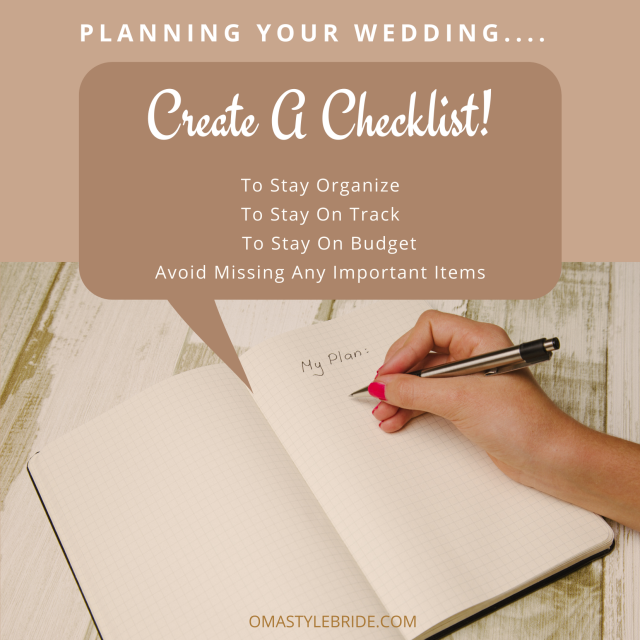
Finally, planning your wedding will require you to create a checklist to help you stay organize with your wedding plans. Once you complete any item, check it off your list to stay on track of your scheduled wedding date.
Planning a wedding can be stressful, so having a checklist is very important to avoid missing any important item and also to help you reduce stress of planning the biggest event of your life to date, especially if you have planned any wedding before.
For step by step detailed wedding planning checklist, check out our Multicultural Bride Detailed Planning Checklist and get your free copy today.
Planning a wedding with ease is doable if you know where and how to start. So if you find yourself, asking yourself, how do I plan my Nigerian wedding? Where do I start from? It’s my hope the above six steps give you the answers so you can start your plans without all the stress.
I wish you all the best with your planning & marriage! Cheers!
Vendors:
Klalaphotography – Naric_Weddings – Jema_photography – Jema Studios


YOU MAY ALSO LIKE
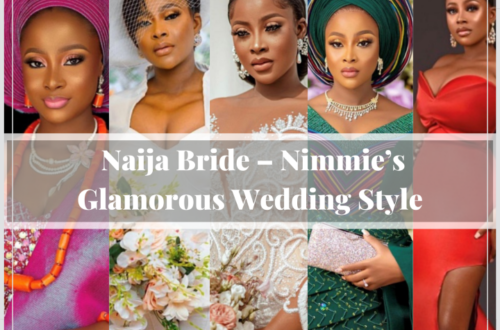
Naija Bride – Nimmie’s Glamorous Wedding Style
July 18, 2021
Beautiful Nigerian Traditional Wedding Cakes
June 10, 2022